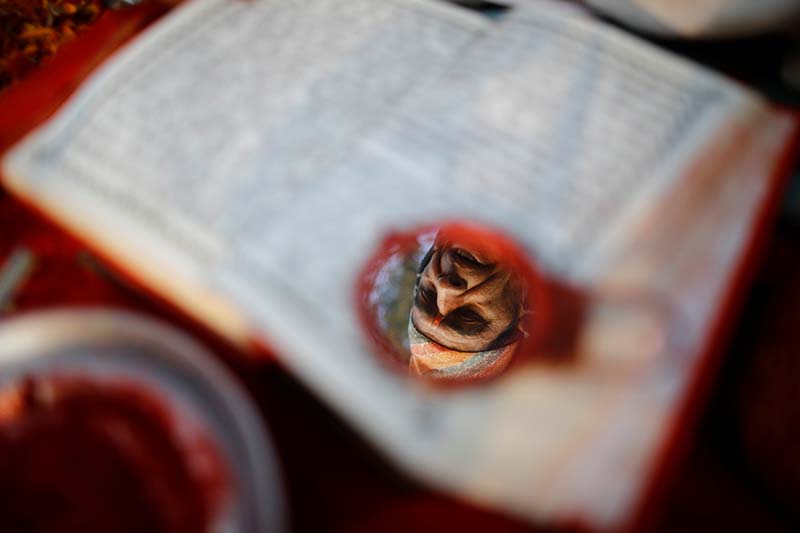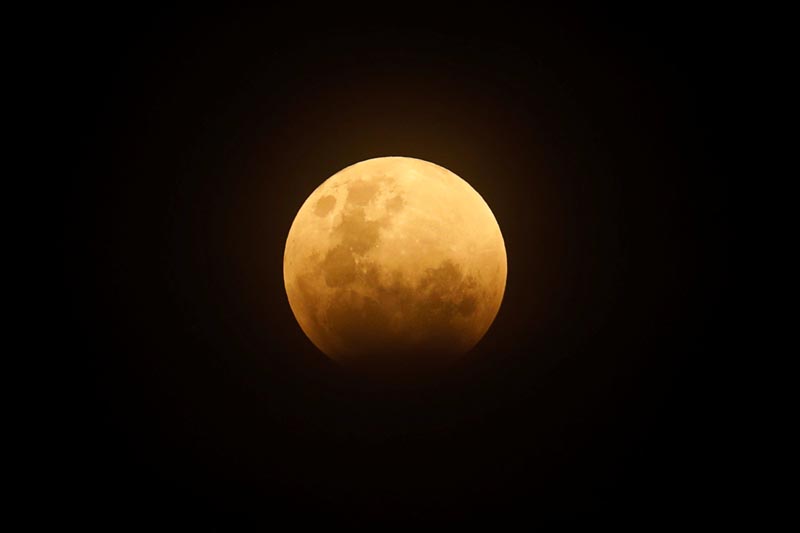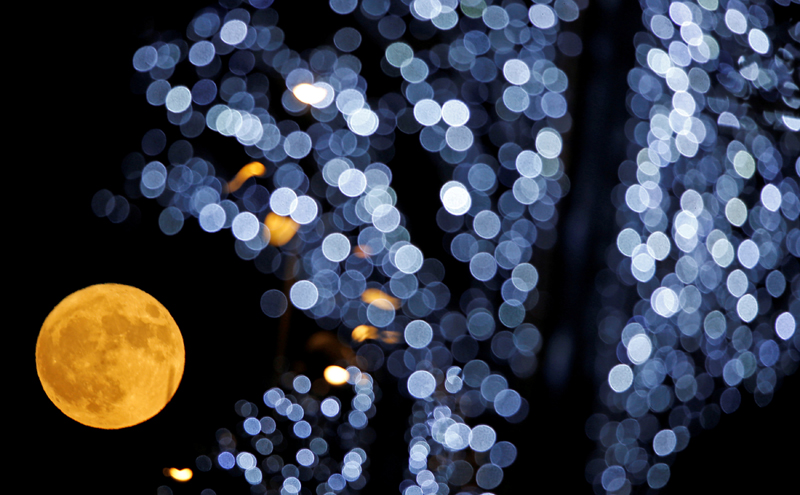Super blue blood moon, eclipse coincide with last day of Swasthani Vrata
KATHMANDU: People across the most parts of the world would get to witness the phenomenal triad of supermoon, blue moon, and total lunar eclipse on Wednesday, January 31.
This rare celestial event has occurred after 152 years. The same lunar event had last occurred on March 31, 1866, according to Chairperson of Nepal Astronomical Society, Suresh Bhattarai.
“The moon will rise at 5:37 pm in Nepal. The eclipse will start at 5:33 pm as per the local time and end at 8:57 pm. The total lunar eclipse will occur at 6:36 pm and will last for a span of one hour sixteen minutes,” said Bhattarai.
“During the partial phase, the moon will be seen blood red,” he added.
BLUE MOON
“People call NASO and ask whether the moon will be seen blue in colour. That is not true. It is just two full moons happening in a single month,” expressed Bhattarai.
Blue moon is a lunar event that normally occurs once every two and a half years. According to the Gregorian calendar, when two full moons occur in the same month it is termed as blue moon. Earlier, the full moon was on January 1 this year.


COINCIDING WITH SWASTHANI PURNIMA
This rare celestial phenomenon has coincided with the concluding day of Swasthani Purnima, one of the greatest festivals among Hindus in the country. The festival begins on Poush Shukla Purnima as per the lunar calendar and lasts for a month.
This year, the concluding day befalls on the eclipse day, which has raised doubt among the general public reciting the holy book of Swasthani regarding concluding day of the month-long festival.
Talking to THT Online, Associate Professor at the Nepal Sanskrit University Amoda Acharya, who holds a PhD in Vedic Studies said, “Well, there are no such restrictions mentioned in the Vedic principles. But, one can conclude it on ‘purvanga’, the eve of Swasthani Purnima. "Purvanga is the time when even Sutak (the period of abstention observed by the Hindus after the death or birth of a family member) does not come into effect.”
However, according to astrologer Dil Raj Padhyaye, the ‘Sutak’ period starts from 8:22 am and lasts till the eclipse at 8:57 pm on Wednesday.
“Eclipses are a good time for performing puja, reciting ‘paath’ (holy scriptures), and donating goods among others. One can easily recite the holy book. But during the eclipse, they cannot receive tika and prasad as the Sutak period begins,” he added.
The eclipse will not hamper elderly, children and people with ailments, he stated.
Many might believe that devotees are not allowed to receive the tika and prasad on the concluding day of the Bratakatha due to the eclipse. However, Padhyaye assured that after the penumbral eclipse ends, the devotees are allowed to carry on with the normal proceedings of the Bratakatha including the tika and prasad as it will not have any adverse effect on them.
Meanwhile, if some of the devotees do not feel comfortable with concluding the Bratakatha on the day of the eclipse, then coming Monday, panchami of the lunar calendar, will be favourable to conclude the one-month long festival.
READ ALSO:
(Updated)






